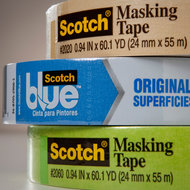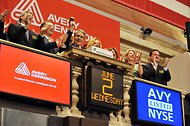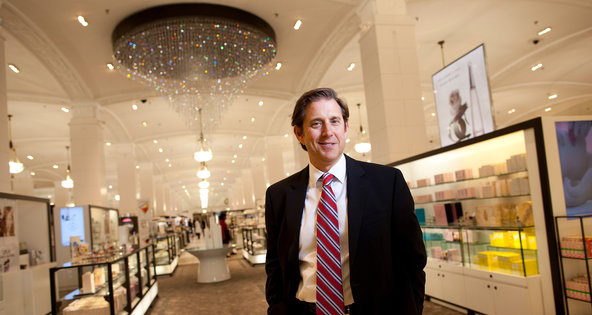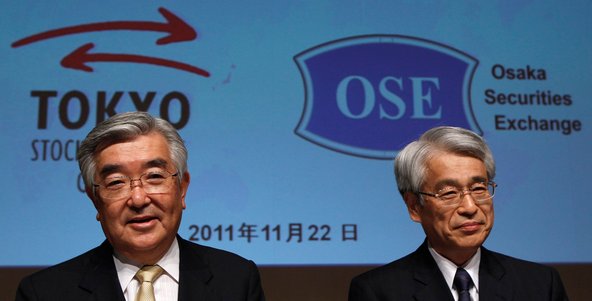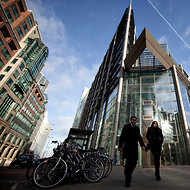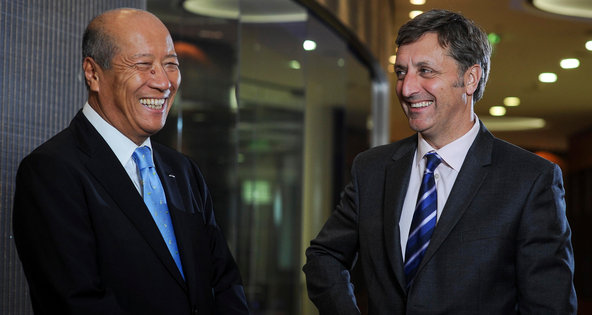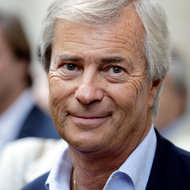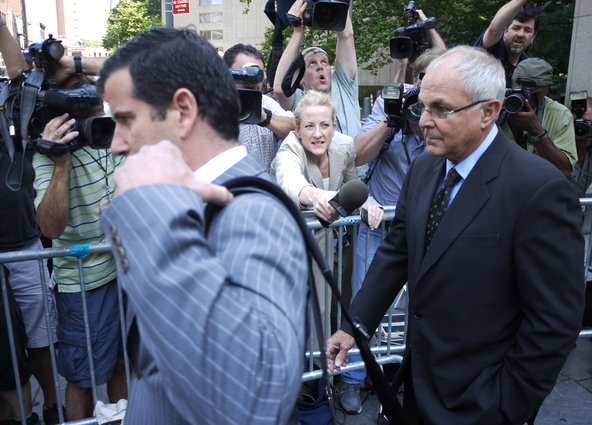 Peter Powell/European Pressphoto AgencyManchester United team members celebrated a victory against Wigan on Saturday.
Peter Powell/European Pressphoto AgencyManchester United team members celebrated a victory against Wigan on Saturday.
Manchester United‘s net loss for its fourth quarter widened significantly from the year-ago period, the soccer club said on Tuesday in its first earnings report as a publicly traded company.
The club’s loss grew to £14.9 million, or $25.2 million, from £400,000, or $649,000. Its revenue tumbled 25 percent, to £74.5 million.
For the 2012 fiscal year, the company said that it earned £23.3 million, or $37.9 million, as commercial revenue rose. But overall revenue dipped 3 percent, to £320.3 million.
Related Links
With its initial public offering last month, Manchester United has become one of the few sports teams to brave the public markets in years, and certainly one of the biggest. And along the way, it has had to combat the perception that athletic enterprises generally don’t perform well in the public markets.
The team has argued that it is more than just an assemblage of soccer players dependent on ticket sales, but a full-fledged media empire with plenty of revenue sources. The club said that its commercial revenue, which draws in money from sponsorships and merchandising, grew nearly 14 percent last year, to £117.6 million, thanks to a high number of renewals and growth in the new media and mobile business.
And the club’s $559 million sponsorship deal with General Motors is significantly higher than its previous partnership with the insurer Aon.
“We are delighted to announce our first results as a NYSE listed company; fiscal 2012 was the best year ever for Manchester United’s commercial business,” Ed Woodward, the company’s executive vice chairman, said in a statement.
But other parts of Manchester United’s business haven’t performed as well. Broadcasting revenue for the year fell more than 11 percent, to £104 million, though the club promises a forthcoming increase in TV rights in Britain to Premier League games beginning in the 2013 season. And game-day revenue also slid 11 percent, to £98.7 million, as the team failed to progress beyond the group stage of the Champions League this past season.
Investors appeared little moved by the earnings news, with shares in Manchester United rising less than 1 percent in early morning trading, to $13.05. They have fallen 7 percent since the I.P.O. last month.
Article source: http://dealbook.nytimes.com/2012/09/18/manchester-uniteds-4th-quarter-loss-widens/?partner=rss&emc=rss
